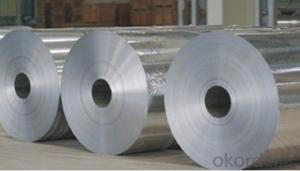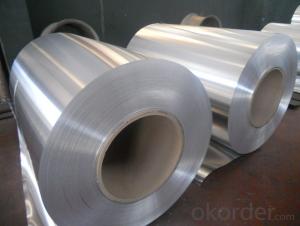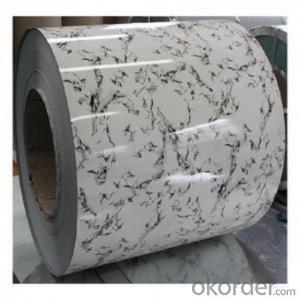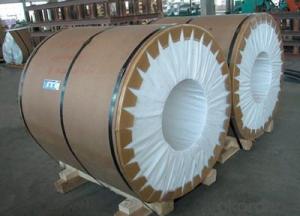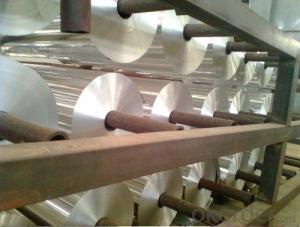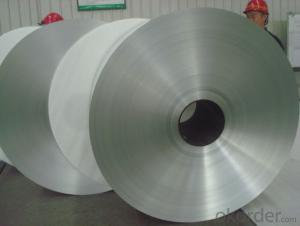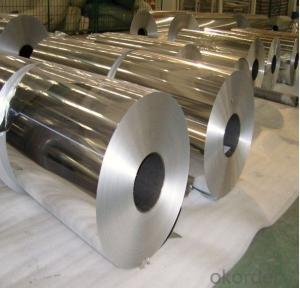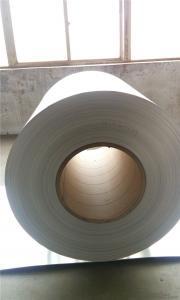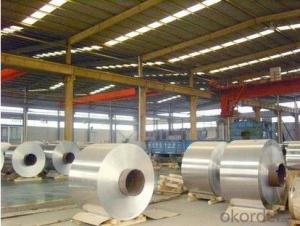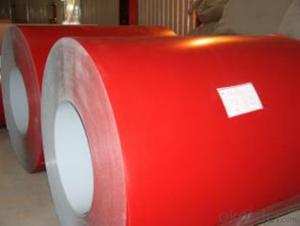ASTM Grade 3003 Aluminum Strips Belt for Solar - Aluminum Coil in Pensacola
- Loading Port:
- Shanghai
- Payment Terms:
- TT OR LC
- Min Order Qty:
- 5 m.t.
- Supply Capability:
- 500 m.t./month
OKorder Service Pledge
OKorder Financial Service
You Might Also Like
Specification
ASTM Grade 3003 Aluminum Strips Belt For Solar
aluminum coil specifications:
1) Alloy :1050, 1060,1100, 3003 3004 3105 3A21 5005 5052 etc
2) Temper: O/H12/H14/H1/H18/H32/H34/H36/H38//H111/H112/H116/H321/T6/T651/T3/T351 etc
3) Thickness: 0.1mm to 6mm
4) Width:20mm to 3300mm
5)Coil weight: 100kgs to 6 tons depends on actual requirement
6)Core material: Aluminum or paper
7)Coil Inner diameter: 75mm, 150mm, 200mm, 300mm, 405mm, 505mm or as required
8) Protective film can be added
item | 3003 Aluminum coil | |
Standard | GB/T3190-2008,GB/T3880-2006,ASTM B209,JIS H4000-2006,etc | |
Material | 1060,1050,1100 3003,3103,3004,3005,3105 5052, 5454,5754 | |
Size | Thickness | 0.5mm-3.5mm |
Width | 800-1500mm | |
Weight/Roll | About 1.5MT/3MT | |
Quality control | Mill Test Certificate is supplied with shipment, Third Part Inspection is acceptable. | |
Surface | Bright, polished, hair line, brush, checkered, embossed, etc | |
Trade terms | Price term | ,FOB, CNF, CIF, etc |
Payment Term | TT,L/C | |
MOQ | 2MT | |
20 GP Capacity | About 20-25MT | |
Delivery time | 1.The products will delivery immediately after receiving the payment. 2.According to the order quantity, prompt delivery. | |
Export to | Ireland,Singapore,Indonesia,Ukraine,Spain,Canada,USA,Brazil,Thailand,Korea,Iran,India,Egypt,Kuwait, Oman,Viet Nam, South Africa, Dubai, Russia, etc | |
Package | Stick blue film→plastic film→waterproof paper→1~2 tons on a export standard pallet(corner protection) | |
Application | 1)Further making utensil.2)Solar reflective film3)The appearance of the building4)Interior decorating:ceilings,walls,etc.5)Furniture cabinets6)Elevator decoraction7)Signs,nameplate,bags making.8)Decoration inside and outside the car9)Household appliances:refrigerators,microwave ovens,audio equipment,etc.10)The consumer electronics:mobile phones,digital cameras,MP3,etc. | |
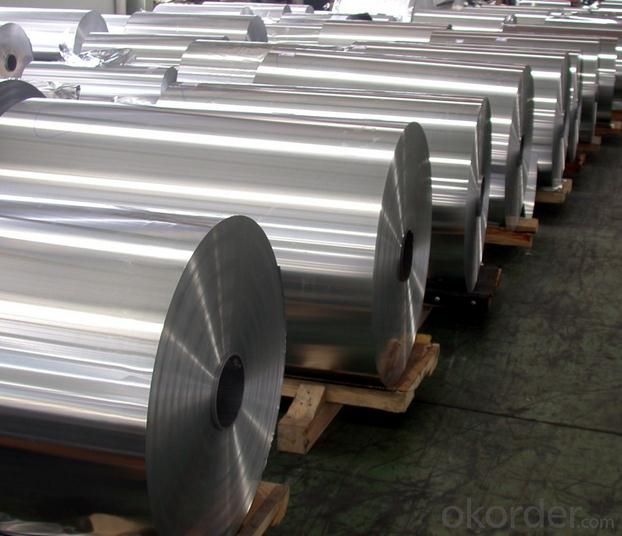
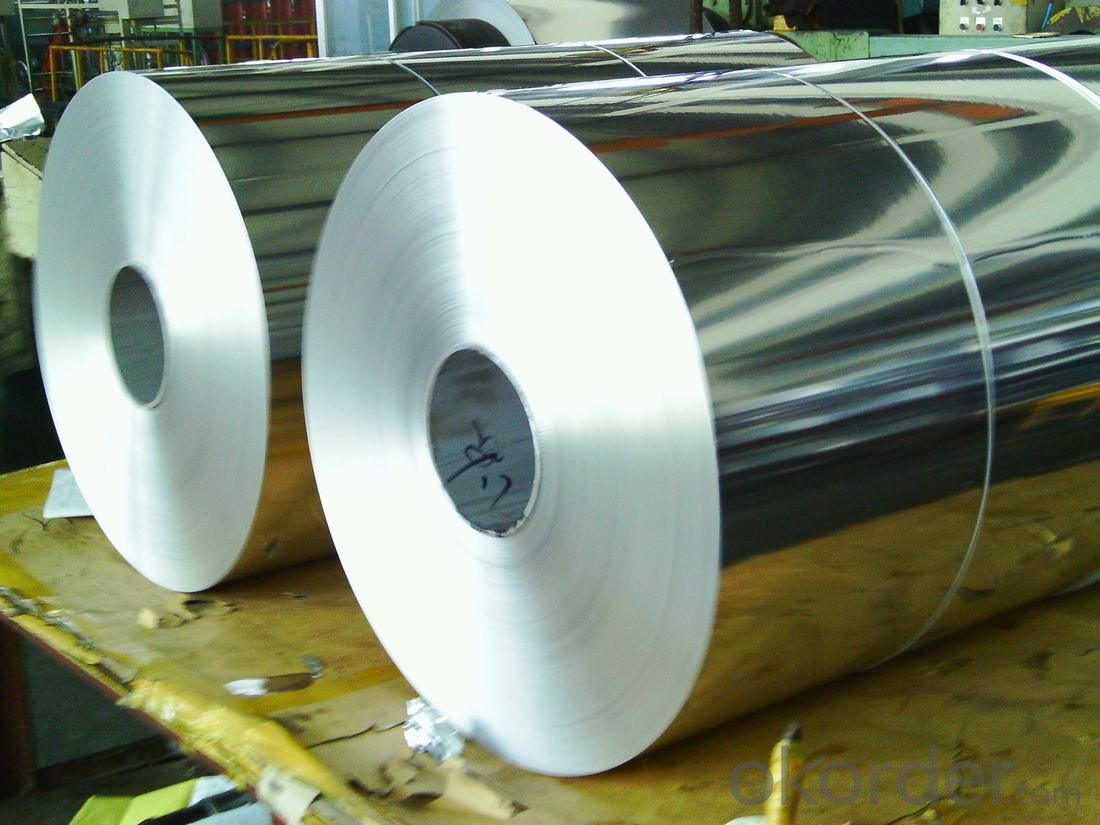
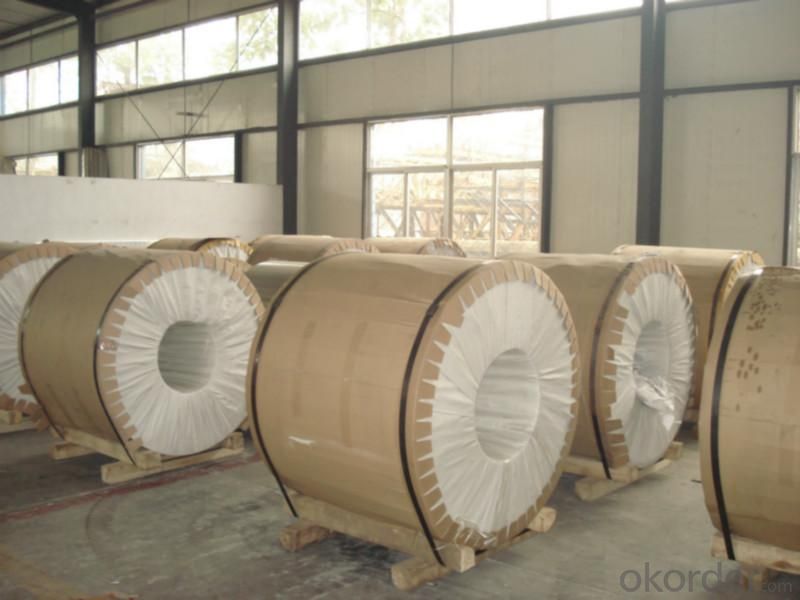
- Q: What are the different grades of aluminum used in coil manufacturing?
- The different grades of aluminum commonly used in coil manufacturing include 1100, 3003, and 5052. These grades vary in their chemical composition, mechanical properties, and suitability for various applications.
- Q: How do aluminum coils contribute to the thermal conductivity of products?
- Aluminum coils play a significant role in enhancing the thermal conductivity of various products. Due to the exceptional thermal properties of aluminum, coils made from this material are highly efficient at transferring heat. The thermal conductivity of aluminum is much higher compared to other common metals, such as steel or copper. This means that when aluminum coils are used in products, they can quickly and effectively transfer heat from one area to another. For instance, in HVAC systems, aluminum coils are often utilized in air conditioning units. When the refrigerant flows through the coils, the aluminum material rapidly absorbs the heat from the surrounding air. This allows for efficient cooling, as the heat is quickly transferred away from the air and expelled, resulting in a more comfortable indoor environment. Similarly, in heat exchangers, aluminum coils facilitate the transfer of heat between two fluids or gases. The high thermal conductivity of the aluminum allows for efficient heat exchange, ensuring that the desired temperature is achieved in a timely manner. Moreover, aluminum coils are lightweight, which makes them more convenient to handle and install in various products. This characteristic is particularly advantageous in industries such as automotive, aerospace, and electronics, where weight reduction is crucial. In summary, aluminum coils significantly contribute to the thermal conductivity of products by efficiently transferring heat due to their high thermal conductivity properties. Their lightweight nature further enhances their versatility and practicality in multiple industries.
- Q: I need to draw dot and cross diagrams to explain how they bond, but if the aluminium outer shell has 13 electrons and the oxygen one has 6, how do they all become happy atoms, and all have a full outer shell? please help! thank you.
- I really do not know so ask somebody else
- Q: I know aluminum has 3 valence electrons and oxygen has 7, but if anyone could explain the chemical formula to me it would be great.
- You are right about aluminum having 3 valence electrons, but oxygen has 6. Oxygen wants two more to get to 8. So the ions are Al +3 and O-2. The formula is Al2O3
- Q: Can aluminum coils be used in the production of aluminum composite walls?
- Aluminum composite walls can utilize aluminum coils for production purposes. To construct these walls, a layer of polyethylene is typically sandwiched between two aluminum sheets. Initially, the aluminum coils undergo processing to transform into flat aluminum sheets, which then function as the outer layers of the composite wall. During the manufacturing process, the coils are unravelled and flattened to achieve the desired width and thickness of the aluminum sheets. These sheets possess superior strength, durability, and resistance to weather conditions, making them an ideal choice for aluminum composite walls. Moreover, the utilization of aluminum coils enables efficient and cost-effective production since they can be easily processed and moulded into the required dimensions.
- Q: Can aluminum coils be used in refrigeration systems?
- Yes, aluminum coils can be used in refrigeration systems. Aluminum is a popular choice for coil materials in refrigeration systems due to its excellent heat transfer properties and corrosion resistance. Aluminum coils are lightweight, durable, and efficient in transferring heat, making them suitable for use in various refrigeration applications such as air conditioning units, refrigerators, and freezers. Additionally, aluminum coils are easier to shape and install compared to other materials, making them a preferred choice for manufacturers.
- Q: Can aluminum coils be used in agricultural applications?
- Aluminum coils are suitable for agricultural applications. They offer numerous benefits for agricultural purposes due to their versatility and lightweight nature. In the agricultural industry, aluminum coils are commonly utilized in greenhouse frames, irrigation systems, and grain storage bins. The resistance to corrosion is one of the key advantages of aluminum coils in agricultural applications. Aluminum is naturally resistant to rust and can withstand exposure to moisture, chemicals, and other elements commonly found in agricultural environments. As a result, it is a durable and long-lasting choice for agricultural equipment that needs to endure harsh conditions. Moreover, aluminum coils have excellent thermal conductivity, allowing them to efficiently transfer heat. This property makes them ideal for heat exchangers, which are frequently used in agricultural machinery like tractors and combine harvesters. Efficient heat transfer helps maintain optimal operating temperatures and enhances overall equipment performance. Additionally, the lightweight nature of aluminum coils makes them easy to handle and transport. This is particularly advantageous in agricultural applications where equipment needs to be frequently moved, such as portable irrigation systems or lightweight structures. The lightweight nature of aluminum also aids in reducing fuel consumption in machinery, leading to cost savings and environmental benefits. Furthermore, aluminum is a non-toxic material, ensuring its safety in agricultural applications. It does not release any harmful chemicals or leach into the soil, thus keeping crops uncontaminated and safe for consumption. In conclusion, aluminum coils are a reliable and efficient choice for various agricultural equipment and structures. Their corrosion resistance, thermal conductivity, lightweight nature, and non-toxic properties contribute to increased productivity and sustainability in the agricultural industry.
- Q: What are the different types of surface coatings for aluminum coils?
- There are several types of surface coatings available for aluminum coils, including polyester, polyvinylidene fluoride (PVDF), epoxy, acrylic, and plastisol. Each coating offers unique properties such as durability, weather resistance, chemical resistance, and color retention. The choice of coating depends on the intended application and the specific requirements of the aluminum coil.
- Q: What are the potential applications of coil-stucco aluminum coils?
- Coil-stucco aluminum coils have a wide range of potential applications due to their unique properties and characteristics. Some of the potential applications of coil-stucco aluminum coils include: 1. Building and construction: Coil-stucco aluminum coils are commonly used in the construction industry for various purposes. They can be used for roofing, cladding, and siding applications, providing durability, versatility, and aesthetic appeal to buildings. The stucco finish on the coils adds texture and enhances the overall appearance of the building. 2. Transportation industry: Coil-stucco aluminum coils are also used in the transportation industry for manufacturing trailers, truck bodies, and other vehicles. Aluminum is lightweight, yet strong, making it an ideal material for reducing the weight of vehicles and increasing fuel efficiency. The stucco finish on the coils provides additional strength and resistance to scratches and abrasions. 3. Appliances and electronics: The coil-stucco aluminum coils are suitable for manufacturing appliances and electronics due to their corrosion resistance and thermal conductivity. Aluminum coils are commonly used in refrigerators, air conditioning units, and other household appliances. The stucco finish provides an added layer of protection against wear and tear. 4. Signage and advertising: Coil-stucco aluminum coils are widely used in the signage and advertising industry for making outdoor signs, billboards, and displays. The stucco finish enhances the visibility of the signs by reducing glare and reflections. Additionally, aluminum is a weather-resistant material, making it suitable for outdoor applications. 5. Packaging industry: Coil-stucco aluminum coils find applications in the packaging industry as well. Aluminum is a non-toxic and non-reactive material, making it suitable for packaging food and beverages. The stucco finish adds an attractive texture to the packaging material, making it visually appealing. 6. Industrial applications: Coil-stucco aluminum coils are used in various industrial applications such as manufacturing equipment, storage tanks, and processing systems. The excellent corrosion resistance, high thermal conductivity, and strength make aluminum coils a preferred choice in industries where these properties are crucial. Overall, the potential applications of coil-stucco aluminum coils are diverse and extensive. The unique properties of aluminum, combined with the stucco finish, make these coils suitable for a wide range of industries, including construction, transportation, appliances, signage, packaging, and industrial applications.
- Q: Can a rolling machine be utilized to transform aluminum coils into flat sheets?
- <p>Yes, you can use a rolling machine to roll aluminum coils into sheets. Rolling machines are specifically designed to apply pressure and reduce the thickness of metal coils, such as aluminum, into thinner, flatter sheets. The process involves passing the aluminum coil through the rolling mill, where it is compressed between rollers. This process can be repeated to achieve the desired thickness and flatness of the aluminum sheet. It's important to ensure the rolling machine is suitable for aluminum and that the appropriate settings are used to avoid damaging the material or the machine.</p>
Send your message to us
ASTM Grade 3003 Aluminum Strips Belt for Solar - Aluminum Coil in Pensacola
- Loading Port:
- Shanghai
- Payment Terms:
- TT OR LC
- Min Order Qty:
- 5 m.t.
- Supply Capability:
- 500 m.t./month
OKorder Service Pledge
OKorder Financial Service
Similar products
Hot products
Hot Searches
Related keywords
